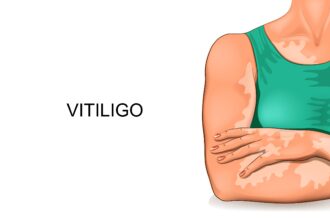According to the 2014 National Survey on Drug Use and Health, approximately 7.9 million people in the U.S. struggle with both a mental health disorder and substance abuse. This often goes overlooked, because many of the symptoms associated with substance use disorder overlap with the symptoms of mental illnesses.
Some of these overlapping symptoms may include anxiety, manic or erratic behavior, depression, insomnia, and lethargy. As a result, it is common for one disorder to be treated, but not the other. However, dual-diagnosis treatment can effectively treat both mental health conditions and substance abuse. In this form of treatment, not only can individuals learn about how to cope with and treat their conditions, but they can also learn about the different factors that contribute to co-occurring disorders.
Biological Factors
Genetics play considerable role
in both mental health conditions and substance abuse. Children who are born to drug addicted parents are more likely to struggle with addiction and alcoholism themselves due to extreme chemical alterations during prenatal development as a result of substance abuse.
In addition to substance abuse, genetics can also play a role in the development of mental illness. Since gene abnormalities are passed from one generation to the next, if a parent or grandparent has a mental illness the genes inherited by children can be more susceptible to mental behavior conditions. Although it may be unclear whether substance abuse or mental illness occurs first, they can both arise through genetic factors.
A lot of medications used to treat mental illnesses are highly addictive. Benzodiazepines, for example, are frequently used in treating anxiety disorders such as generalized anxiety disorder, social anxiety disorder, and panic disorder. These medications also have a high potential for abuse. If an individual feels that their medication is no longer working, or if they are taking a certain medication for extended periods of time, they may build up a tolerance to the medication and begin to take larger doses, which provides the potential to developing a physical dependence or substance use disorder.
Psychological Factors
Psychological trauma as a result of physical or emotional abuse, significant loss of a loved one, or life-threatening events can be a contributor to both mental illness and substance abuse. Experiencing intense trauma can lead to the development of post traumatic stress disorder, anxiety, and depression. Drugs and alcohol may seem like the only way for somebody with trauma to cope with what they have been through. Many people who are trying to overcome addiction undergo trauma therapy to teach them how to talk about and cope with past traumas.
Environmental Factors
A child raised in a home where there is excessive drug use or drinking can make them more susceptible to addiction. At a young age, children mimic the actions of their caretakers. If a child is raised around family members who experience a substance use disorder, the child may not see the problems or dangers of drug use, and may begin using drugs much earlier in life than others.
Using drugs while the brain is still developing can be a deadly combination as it can lead to serious alterations in brain functioning. Since the brain isn?t fully developed until age 25, a underdeveloped brain affected by substance abuse may result in an inability to cope with emotions, a lack of motivation, poor judgement, and an increase in impulsive behaviors – all of which can heighten one?s desire to abuse mood and mind altering substances.
Treatment of Dual-diagnosis Individuals
Treatment for co-occurring disorders will typically begin through a medically facilitated detox. Risks can be minimized by undergoing detox in a medical facility so that the individual can be slowly and safely tapered off of substances while under medical supervision. Then, it can be extremely beneficial for the individual to participate in an inpatient treatment center that has a focus on co-occurring disorders.
They will be given the opportunity to be properly diagnosed and be given the appropriate care and therapy needed for an individual?s success. Following inpatient treatment, living in a sober living house can make the transition from inpatient care to outpatient care less intimidating, as it provides a person with the support needed to maintain long term sobriety while treating a mental health condition.
Conclusion
Co-occurring disorders can be overwhelming, especially upon first diagnosis, but they can be managed with the help of excellent care. Take things one step at a time.







